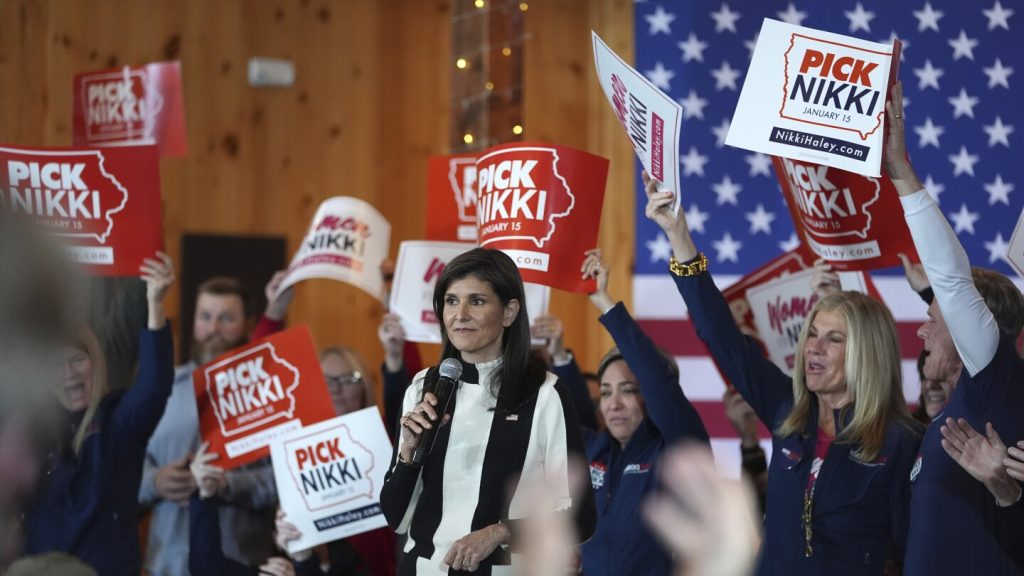After Nikki Haley closed her presidential campaign, some of her supporters are still uncertain about whom to vote for in the upcoming election. While some former Haley backers have decided to reluctantly support President Joe Biden, others are returning to voting for former President Donald Trump despite their initial reservations. The apparent splintering of Haley’s voter base could potentially hurt Trump’s chances in key battleground states, particularly among suburban voters who are skeptical of a Trump presidency. Interviews with Haley’s supporters suggest that they may choose various options including backing Trump, voting for Biden, supporting third-party candidates, or delaying their decision until later.
Haley has remained silent since leaving the race, not endorsing Trump or indicating her support for his candidacy. Some key donors and supporters of Haley, like Eric Tanenblatt, are still undecided and waiting for a sign from Trump. Tanenblatt, who was co-chairman of Haley’s Georgia campaign, expressed his reluctance to support Trump due to his inflammatory rhetoric and policy differences, such as Trump’s stance on military aid to Ukraine. He has also discussed the possibility of supporting a third-party candidate through a unity ticket with donors and supporters who were involved in Haley’s campaign.
Some former Haley supporters, like Glenn Swanson and John Wynstra, have decided to vote for Trump despite their previous reservations. Swanson admitted to being a “closet Trump fan” and expressed his intention to support Trump in the upcoming election. Wynstra, who initially leaned towards Haley or Florida Governor Ron DeSantis, is strategically backing Trump and the Republican platform in opposition to Biden. However, he hinted at the possibility of supporting a third-party candidate like Robert F. Kennedy Jr., depending on their viability and positions.
In Haley’s home state of South Carolina, some voters like high school teacher Michael Burgess are critically evaluating their options for the upcoming election. Burgess expressed his reluctance to vote for Trump due to concerns about the Constitution and the support he receives from his congressional allies. He highlighted his preference for a moderate candidate like Haley or former Rep. Liz Cheney, indicating that he would support Biden if an independent run by Haley or a moderate candidate did not materialize. Some of Haley’s donors have expressed concerns about the lack of communication from Trump’s team and are actively exploring other options, including supporting third-party candidates or refraining from making any decisions for now.
Looking ahead, Haley’s donors could potentially play a significant role in shaping the outcome of the election if they were to rally behind Trump. Trump and national Republicans currently lag behind Biden and Democrats in fundraising, with Trump’s campaign and affiliated groups having less cash on hand compared to the Democratic counterparts. However, Haley ended last month with a substantial amount of funds, indicating her continued influence in the political landscape. As the election approaches, Haley’s supporters and donors will continue to assess their options and determine the best course of action for themselves and their preferred candidates.















